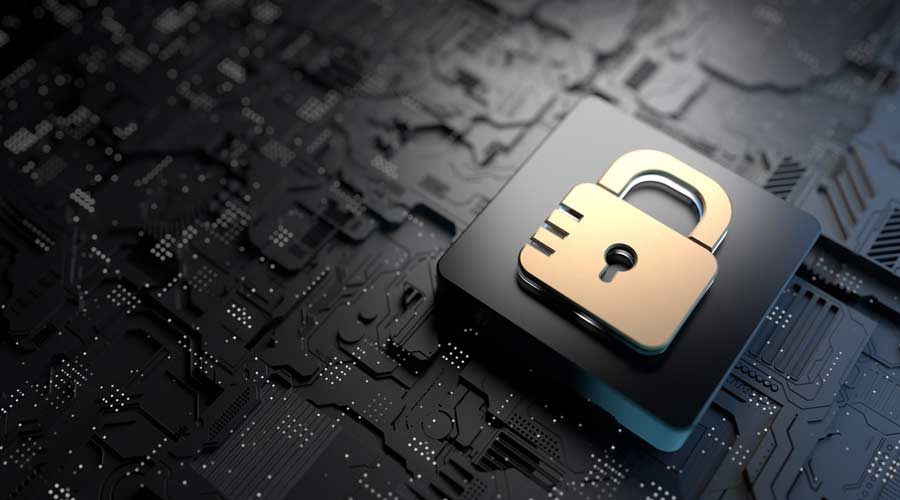
Contributed by Janitorial Manager
While necessary, when it comes to providing credit card companies and banks, and even doctors’ offices, with your personal information there is always the potential for sensitive information or money to be leaked or stolen. This is just the nature of sharing information with others.
However, what about commercial cleaning businesses? It may seem like cleaning products have no use for data protection, but let’s take a deeper look. In a data security setting, how much is separating your supply order from your company’s financial information or even from your customer accounts? It’s one thing for your own data to get stolen, but when you have sensitive customer information that gets hacked, you’re in for a world of extensive headaches and difficulties. Failing to protect your data and your customers’ data can lead to anything from credit car
To fully appreciate why data protection is important, it’s helpful to know the many ways data and information can be stolen. While hackers and cyberattacks come to mind most often, some data theft stems from a matter of opportunity. For example, a credit card or unlocked phone sitting out in the open presents an occasion for anyone walking by to pocket the item for themself and gain access to your data. Other data thefts and leaks are a matter of poor cyber hygiene. When simple passwords are used like “12345” or “password,” or the need for a password is bypassed, the door is left wide open for someone to easily break into the account.
When it comes to your cleaning operation, it’s also important to consider things like employees clocking in or out for each other, altering inspection results, or even poaching clients with stolen contract information.
Even if this doesn’t happen maliciously, it’s still a possibility. And it’s not cheap. The Federal Trade Commission (FTC) received 73,739 reports of data security and cyber threats in 2021. Another study by the Hiscox Group found that at least 19 percent of U.S. businesses with fewer than 50 employees had experienced one or multiple cyberattacks. IBM tallies the worldwide cost of cyberattacks and data breaches at $4.24 million.
These facts alone are good enough reasons to prove why data protection is crucial. With that being said, how do we actually go about protecting important data?
5 Ways to Protect Your Data
1. Use Strong Passwords. Password-protect your data and use strong passwords. The Cybersecurity & Infrastructure Security Agency (CISA) recommends creating passwords as long and complex as you can. They also suggest avoiding words found in the dictionary and using different passwords for each account. Here are a few other suggestions from CISA.
2. Keep Your Software and Operating System Updated. Software engineers continually improve security, so regular updates can help you avoid cyberattacks.
3. Don’t Open Suspicious Emails. As technology and hackers advance, it’s getting more challenging to discern a real email from one containing a virus. Start looking more closely at things like the email address and consider whether someone you know would send an email with subject lines that don’t seem quite right. For example, an email from IRS.com isn’t really from the IRS if it doesn’t have a .gov address. They also probably aren’t sending you emails with subjects like, “Hey! Check out this new program!”
4. Grant Access on a Need-To-Know Basis. Not everyone on your team needs access to every feature of your software. For instance, while task checklists are helpful for most of your front-line workers, not everyone needs access to supply inventory or ordering. Just so, your team leaders and managers may need access to inspection features, but you might limit bidding to just yourself.
5. Back Up Your Information. When we consider why data protection is important, we don’t usually think about system failures. It’s not at all unheard of for a computer to crash costing you everything from your client contact and billing information to your schedule and maintenance records. To avoid this, there are various cloud solutions for data storage as well as physical hard drives you can take advantage of. Using Janitorial software that utilizes encrypted servers to back up user information is another incredibly helpful safety net.
If you want to go in-depth and analyze your data protection, CISA has an entire hub to help you evaluate your data security. They offer no-cost assessments covering anything from situational awareness to asset management and remote penetration testing.
While data security may sound intimidating, especially if you don’t consider yourself computer savvy, most of it is just a matter of a few minor adjustments and a little common sense. Don’t let your worries keep you from making sure both your cleaning operation and your customers are safe.

 The Down and Dirty on Cleaning in Virus Season
The Down and Dirty on Cleaning in Virus Season How Surfactant Use is Expanding in Commercial Cleaning
How Surfactant Use is Expanding in Commercial Cleaning Clean Buildings Conference
Clean Buildings Conference